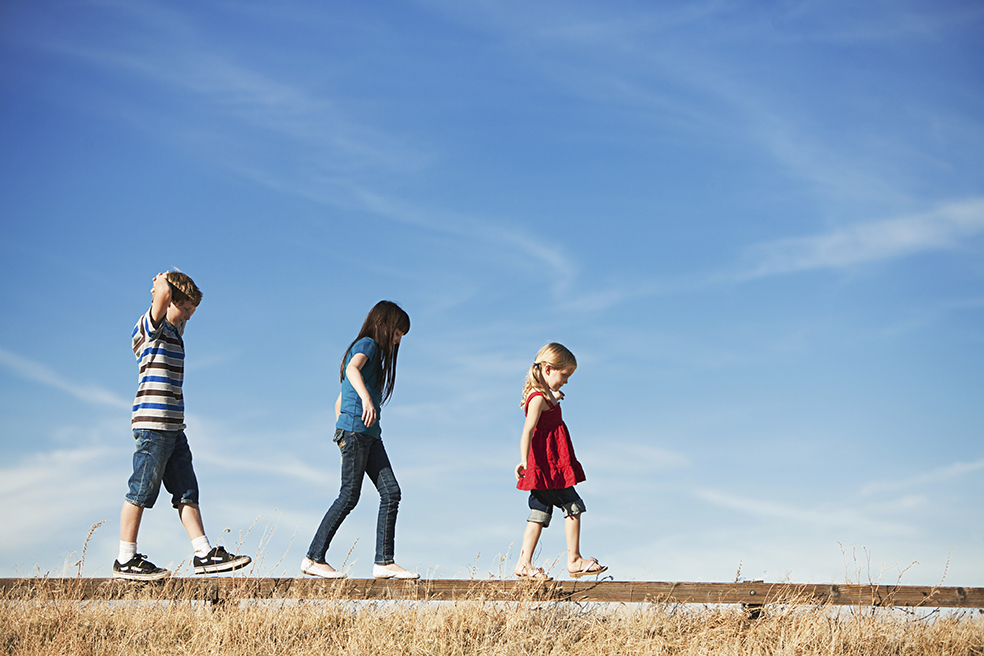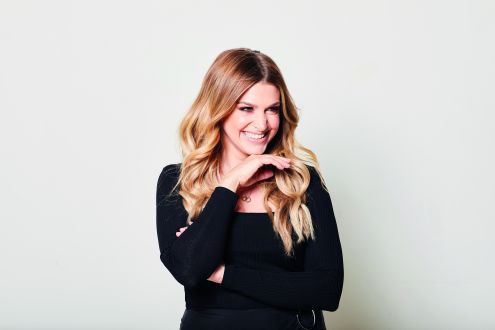What does your birth order mean?
Our birth position can tell us a great deal about our personal characteristics, so can it help us to better understand our family, and ourselves? We ask psychologist Linda Blair, author of Birth Order

Firstborn
The firstborn is always, at one point, the only child who has the full attention of the parent/s and loses it to the second sibling. This is the one place where although unconscious, jealousy is the guiding factor. A firstborn’s aim is to please authority, to be seen as worthy. Firstborns are keen to achieve, they work hard, and they try to take up positions that will receive most praise. Statistically, more firstborns than you would imagine are company directors, presidents and prime ministers. They are the most likely of any of the birth order positions to seek help because they rely on authority figures and think they have the answers. But they are nurturing too, because one of the ways they received praise from their parents was to help with their younger sibling – so they are also quite likely to go into care-giving professions. The downside is they could push themselves too hard.
Middleborns
Middleborns get on with everybody. They are usually born with similar age groups on either side and their main aim is to make sure the waters run smooth – they are great in open-plan offices, they get on in groups – and it’s a myth that they are the troubled dark character (in fact, if anyone is going to go for psychological help it’s the first or last born). Their concern is that because they make sure everyone gets what they need, they can lose their own sense of direction, so middles often feel lost. On that same topic – if anyone is going to go through a craze of dressing crazily or championing the underdog, this will be the middle child too, subconsciously saying, ‘hey, they’re overlooked, I’m overlooked, I know how they feel!’
Lastborns
The youngest tend to be the rebels, the daredevils and the clowns, because parents get more confident with every child and relax the rules. So the lastborns are the most likely to make breakthroughs in creativity and science – they are the innovators. They are most likely to test the limits. They are charming, and if it’s taken too far they can be manipulative because they are used to being cute to get things done for them. The downside of that is that they can give up too easily later on in life because there is no one stepping in to fix whatever’s wrong. They can also be very confused about whether they should grow up – a modern problem since we have had more control over knowing when we will have our final child, so parents tend to reward the cute, babyish characteristics.
Only children
Being a single child used to be a terrible position to be in because most people had more than one child, and if they didn’t they were over-protective of the one they had. These children often grew up lonely; they were often bullied because they were unusual. But now, lots of people are choosing to have just one child and pour all their resources into them, so they aren’t unusual any more, plus parents know the importance of making sure they spend time with children of their own ages so they don’t grow up as tiny adults. So it’s often a great position to be in because they grow up very confident, they find spending time by themselves easy, and they are very verbal and articulate. The one problem they might encounter is that of control issues because they were so used a nice quiet orderly home that as soon as there is any sign of commotion they don’t cope as well.
Does this apply to everyone or are there exceptions to these characteristics?
The wonderful thing about psychology and the reason is that it’s so much fun is that it can’t be applied to everybody. We can’t make a set of laws about the human character. There is no best position, we all have our own assets and there are three main points that temper the general birth order characteristics. First is how you are parented – this matters more than your birth order position because your parents are your role models for life. The second influential factor is the birth order position of your parents, and the third is the spacing between children. So there is no rule – they are guidelines to get to know ourselves, and each other better.
How do our parents feed into the birth order effect?
Parents unconsciously feel they have a better understanding of the child whose birth order position is the same as their own (usually to the chagrin of the child). They can also have a soft spot for the child whose birth order matches that of their favourite sibling when growing up.
What effect do age gaps have on our sibling relationships?
Say you are a middle child and the next child doesn’t come along until you are six, you will have middleborn and lastborn characteristics because for a long time you grew up as the youngest. The introduction of stepsiblings can also affect birth order if you are under seven years old and those siblings come to live with you. Then you might find intense rivalry for the birth order positions that match, for example the firstborns, even if they are eight and 12.
How does the gender mix of our sibling group affect our family dynamic?
If you are the only one of your gender in the family you will have a number of firstborn characteristics. And in large families (four plus), if you are of the same gender it’s very likely that you will be incredibly stereotypical your gender, very feminine or masculine, as if reinforcing each other’s characteristics.
How can we use birth order information to get to know ourselves better?
We use birth order because there is no influence in your life that will last longer. The interesting thing to note is that even when you put a group of people in a smallish group of strangers, you’ll almost certainly get people taking on their birth order characteristics within that group, for example, the leader will always almost certainly be a first born. The ideas will come from a lastborn. Birth order is critical to how we interact within relationships both inside and outside of our families throughout life.
Birth Order: What Your Position In The Family Really Tells You About Your Character by Linda Blair (Piatkus, £8.99)
Photograph: iStock









